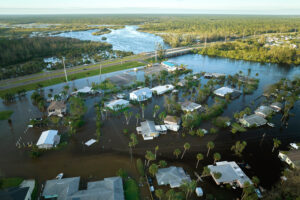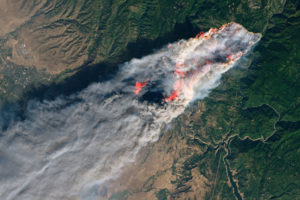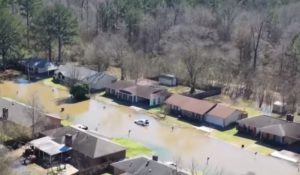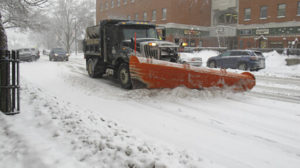Record ‘Dead Zone’ Expected in Gulf of Mexico
Scientists fear that farm chemicals carried from fields into the Mississippi River by this spring's record floods will create the largest "dead zone" the Gulf of Mexico has seen since measurements were first taken in 1985. (more)
Scientists fear that farm chemicals carried from fields into the Mississippi River by this spring’s record floods will create the largest “dead zone” the Gulf of Mexico has seen since measurements were first taken in 1985.
Among other chemicals, agricultural fertilizers contain phosphorous and nitrogen, elements that encourage plant growth in terrestrial as well as marine ecosystems. The phytoplankton that bloom in the presence of these chemicals feed an explosive population of sea floor-dwelling bacteria that use up all of the oxygen otherwise available for fish, shrimp, crabs and other organisms in the deep. The situation does not bode well for those who depend on the Gulf’s almost $2 billion a year fishing industry. –ARK
Your support matters…Reuters via Scientific American:
This year’s record Mississippi River floods are forecast to create the biggest Gulf of Mexico “dead zone” since systematic mapping began in 1985, U.S. scientists reported on Tuesday.
Often created by farm chemical run-off carried to the Gulf by the Mississippi, the 2011 low-oxygen “dead zone” could measure 8,500 to 9,421 square miles … an area roughly the size of New Hampshire, the U.S. Geological Survey said in a statement.
… Seen year-round but most pronounced in summer, the “dead zone” threatens resources including humans who depend on fish, shrimp and crabs, which need oxygen to survive. The zone typically is located on the bottom of the continental shelf off Louisiana and Texas.
Independent journalism is under threat and overshadowed by heavily funded mainstream media.
You can help level the playing field. Become a member.
Your tax-deductible contribution keeps us digging beneath the headlines to give you thought-provoking, investigative reporting and analysis that unearths what's really happening- without compromise.
Give today to support our courageous, independent journalists.









You need to be a supporter to comment.
There are currently no responses to this article.
Be the first to respond.